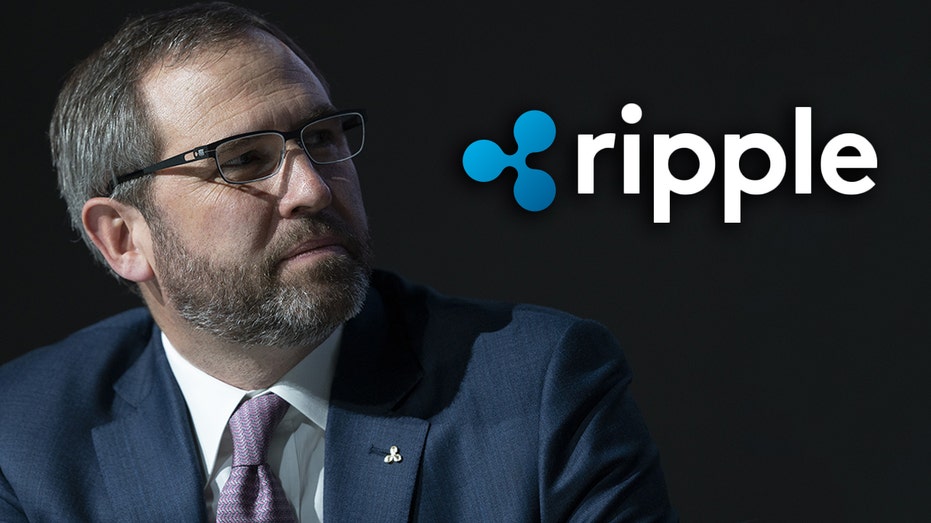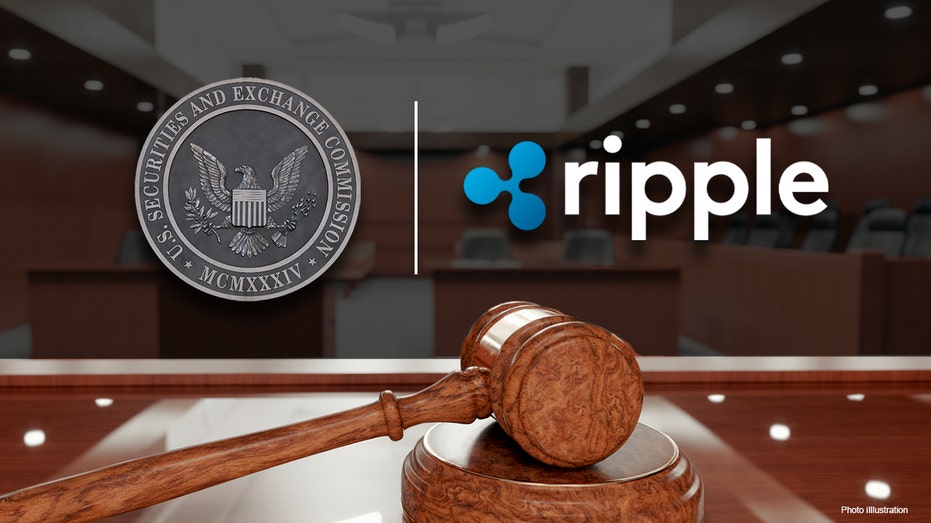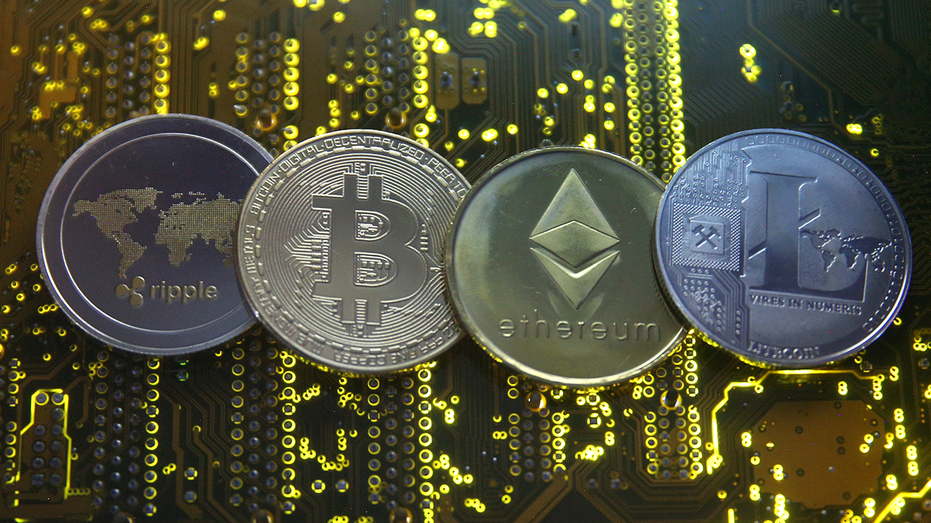Ripple’s legal brawl with SEC could help settle when cryptocurrencies are securities
The SEC says Ripple illegally raised almost $1.4 billion by selling XRP in violation of investor-protection rules
What's driving crypto volatility?
Domain Money founder and CEO Adam Dell weighs in on bitcoin's dip.
The booming cryptocurrency sector’s complaints that Washington has gone too far in cracking down on its unregulated products are getting tested in a key lawsuit targeting Ripple Labs Inc. and its digital coin, XRP.
The lawsuit, which the Securities and Exchange Commission filed in the waning days of the Trump administration, faces several hurdles in the coming months. A Manhattan federal judge has been asked to decide, for instance, whether Ripple can argue regulators should have clearly announced which digital assets they oversee, rather than using enforcement actions to bring the industry to heel.
CRYPTOCURRENCY STRUGGLING EARLY MONDAY MORNING WITH BITCOIN, ETHEREUM, DOGECOIN ALL LOWER
The SEC says Ripple illegally raised almost $1.4 billion by selling XRP in violation of investor-protection rules, while its co-founder and chief executive, whom it also sued, reaped hundreds of millions of dollars in trading gains. The company says XRP is used for making international payments and isn’t an investment to be overseen by the SEC. Some XRP sales occurred before the SEC first said in 2017 that many cryptocurrencies should follow laws written to shield investors from fraud and misleading hype.
Despite the SEC’s 2017 guidance, thousands of digital coins have been sold in recent years without regulatory oversight. The SEC has brought enforcement actions against 56 token issuers, according to Cornerstone Research, but almost all settled with the SEC without going to court, where the regulator’s legal arguments could be tested by a judge or jury. An SEC win would boost its case to impose investor protections on most of the $2 trillion crypto market, while a loss would reinforce the industry’s call for Congress to write clearer and more suitable laws.
"Either way, we are going to have an opinion that would be used by other players in the space to inform how they act and decisions that they make," said Katherine Dowling, general counsel of Bitwise Asset Management, which manages several funds that hold cryptocurrencies.

Brad Garlinghouse, chief executive officer of Ripple Labs Inc., attends a panel discussion at the Singapore FinTech Festival in Singapore, on Monday, Nov. 12, 2018. Photographer: Wei Leng Tay/Bloomberg via Getty Images (Wei Leng Tay/Bloomberg via Getty Images / Getty Images)
Regulators have said just a handful of digital assets, such as bitcoin, are commodities mostly exempt from federal regulation. In contrast, XRP’s usefulness as a currency "never materialized," the SEC says. Ripple touted XRP’s commercial use but didn’t disclose that it paid a money transmitter to accept the coin. The money transmitter sold the digital coins, which gave the appearance that XRP was in greater demand, according to the SEC.
FACEBOOK'S CRYPTOCURRENCY VENTURE TO WIND DOWN AFTER ASSET SALE TO SILVERGATE
Ripple, whose defense attorneys include former SEC Chair Mary Jo White, has litigated aggressively. Early in the case, it sought records from the SEC that might have shown whether the regulator had allowed its staff members to trade XRP. A judge denied the request.
It also sought emails from within the SEC that might show regulators to be uncertain or divided over which tokens fall under their oversight. A federal magistrate judge in January said Ripple and its executives were entitled to some records from the SEC, but also allowed the agency to keep much of its thinking under wraps.
Ripple says its claim that the SEC has been cagey about which crypto assets it regulates supports its argument that it lacked fair notice about XRP’s status. The case, which might not go to trial until next year, has been closely watched because many crypto companies insist regulators should update regulations for digital assets, rather than use lawsuits to enforce rules written in the 1930s.
The SEC has asked a judge to block the fair-notice defense, saying the company had warnings about XRP’s status as a security. Ripple got U.S. legal advice as early as 2012 that XRP could be deemed an investment that would require SEC oversight, according to the agency’s court complaint.
Part of Ripple’s argument relies on a senior regulator’s statement in 2018 that ether, the world’s second-most-valuable cryptocurrency, isn’t a security. Ripple argues that market participants saw William Hinman’s speech as a public notice that digital coins could avoid classification as a security.
CLICK HERE FOR FOX BUSINESS' REAL-TIME CRYPTOCURRENCY PRICING DATA
The XRP cryptocurrency is more like ether than digital tokens the SEC has previously targeted, according to Ripple. Both are decentralized, meaning they are maintained by a network of users and not a single company. Mr. Hinman has since left the agency, and SEC lawyers have said his view wasn’t an official position of the agency. Mr. Hinman declined to comment.

istock (iStock / iStock)
The SEC was told in January to share drafts and emails related to Mr. Hinman’s speech with Ripple. The SEC has indicated it will ask the judge to reconsider her decision.
Ripple Chief Executive Brad Garlinghouse earned almost $160 million from 2017 to 2020 selling XRP he received from the company. Co-founder Christian Larsen, who was CEO until 2016, earned $450 million from XRP sales between 2015 and 2020, according to the SEC, which included his wife’s sales in the total.
CRYPTO'S 2022 OUTLOOK AFTER BREAKTHROUGH 2021
Messrs. Larsen and Garlinghouse have asked the court for early dismissal of the SEC’s complaint against them. The SEC doesn’t have jurisdiction because their XRP was sold to overseas buyers, they say, adding that the regulatory uncertainty surrounding digital assets means the executives’ actions on behalf of Ripple weren’t reckless.

Representations of the Ripple, Bitcoin, Etherum and Litecoin virtual currencies are seen on a PC motherboard in this illustration picture, February 14, 2018. REUTERS/Dado Ruvic/Illustration (REUTERS/Dado Ruvic/Illustration / Reuters Photos)
"We believe the record is clear that XRP is not a security and that the SEC does not have jurisdiction over this matter," said Martin Flumenbaum, an attorney at Paul, Weiss, Rifkind, Wharton & Garrison LLP, who represents Mr. Larsen.
GET FOX BUSINESS ON THE GO BY CLICKING HERE
Ripple’s duel with the SEC has influenced its agenda in Washington, with the firm lobbying Congress to consider a bigger role for other federal agencies such as the Commodity Futures Trading Commission. The company spent almost $1.1 million last year on lobbying, including backing legislation that would create a way for crypto companies to choose supervision by the CFTC. The SEC has argued in court papers that Ripple’s lobbying efforts fueled any confusion about XRP that might have existed.
"Trying to squeeze digital assets, which are more akin to commodities than securities, into a securities regulatory framework simply doesn’t work," said Stu Alderoty, Ripple’s general counsel. "All roads don’t lead to the SEC, because the SEC doesn’t have a rational regulatory framework."




















